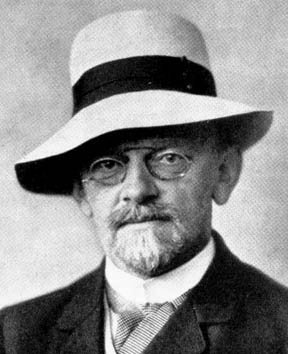"Ms. Amy has published a large number of mathematics research results in the past two years. She used her unique research method to open the door to the palace of algebra. She should not be just a lecturer, at least she should be promoted to associate professor." In the summer of 1921, she was famous all over the world On the parliament of the University of Göttingen, mathematician Hilbert made a grand proposal. This respected old professor felt indignant when he witnessed that although Amy Knott pioneered the subject of abstract algebra, but was only an unpaid lecturer, he said that.
"Our school has given Amy the green light and named it a lecturer; why break the rules and appraise her as a professor?" Although the principal loves talents and knows that Amy's talents have reached the level of professors, he can Live the pressure of everyone. After all, in that era, equality between men and women was impossible.
"Didn't my school hate stereotypes and bad habits the most? Didn't it give Sophie Kovalevskaya a doctorate for an unprecedented time? Why is it difficult to come to Ms. Amy?" Hilbert's voice increased.
"Well, everyone will express their opinions and make a final decision." The principal spread his hands. After more than an hour of discussion, the result is as follows: the school awarded Amy Knott the title of "special professor", that is, no teaching task or fixed salary is required, and the income is collected by the students.

David Hilbert (Hilbert David, 1862~1943)
The next day, when Professor Hilbert told Amy Knott about the news, she looked indifferent, but comforted the Bole who appreciated her: "I am already very satisfied. A female professor. Mr. Hilbert, your sentence "The University Council is not a bathing hall" is your greatest affirmation of me!
Professor Hilbert looked at this colleague who was indifferent to fame and fortune in mathematics with approval, and sighed again. He is even more proud that for five years, his vision is correct.
Back in 1916, Professor Hilbert introduced that Amy went to the University of Göttingen alone: according to Professor Klein’s suggestion, she devoted herself to studying the theory of relativity. Amy used a novel method to mathematically derive important conservation laws in physics, which some physicists call "Noord's Law".
Amy's performance has far exceeded that of the lecturer. For this reason, at the professors' meeting at the University of Göttingen, Professor Hilbert proposed that the school approve her to become the first female lecturer of the school. However, this proposal caused great controversy.
"She wants to become a lecturer, which means she can become a professor in the future, and she can also enter the university council. Let women enter the highest academic institution of the university, okay?"
"Our soldiers have come back to accept the study and have to bow down to the women's feet to listen to the class. Will they agree?"
"This is incredible! I object."
...
"My friends, the college council is not a bathhouse. Why should the gender of a candidate be a reason for opposing the selection of lecturers?" Professor Hilbert said excitedly. Although he fought hard on reason, he failed in the end. Amy failed to be rated as a lecturer, and could only start a class under the name of Professor Hilbert at the University of Göttingen. Salary can only be divided from Professor Hilbert's name. This situation continued until 1918. Following the defeat of Germany in the First World War, a democratic revolution was set off within Germany, which more or less lifted the shackles on women. This year, 37-year-old Amy became a lecturer.

University Library of Göttingen
Amy is not proud of these reputations, but invests in more professional research. In 1920, she collaborated with Schmedler to publish a paper on the prelude to general idealism; the following year, she wrote the classic article "Idea in the Ring", a classic article on abstract algebra.
Now, abstract algebra is relatively simple to say, but people at that time thought it was very magical. For this reason, Amy can only start from the most basic, that is, to study under what circumstances a quadratic equation like this one variable has a solution, and find the solution. The equation is as follows:
ax2+bx+c=0(a≠0)
Through difficult calculations, Amy finally came to the basic conclusion: in the real number domain, this equation does not necessarily have a solution (b2<4ac); in the complex number domain, it has two solutions. But she did not stop, but extended the objects of abstract algebra from real numbers or complex numbers to any element that satisfies the conditions, including basic concepts such as groups, rings, and fields. Under Amy's efforts, abstract algebra began to deeply influence the development of pure mathematics and entered the field of physics. What a huge contribution this is.
Compared with personal academics, Amy's education career is more brilliant. At the end of 1921, due to social pressure, the school had to give "Special Professor" Amy some basic living expenses. For this "salary" given by her own country, Amy used most of her algebra seminars in addition to enough to feed herself. This class is the most creative and productive research group at the University of Göttingen. The class is full of energetic and active young people: such as Diurin, Waite, and Feiting who later became famous mathematicians, the 25-year-old Soviet mathematician Ullison, the 27-year-old topologist Alexander Love, etc. . Amy not only infects them with her unique passion for science, but also spends all time discussing abstract mathematics with them. In the evening, students often accompany this almost unpaid female professor back to the apartment, arguing about math problems during the day as they walk, and sometimes someone tells two jokes. Thus, in the quiet night, laughter and joy echoed on campus from time to time.

Character profile : Emmy Noether (1882-1935), a German mathematician, has made outstanding contributions to the study of differential inequalities, rings, and ideal subgroups, and is regarded by Einstein as " "The greatest female mathematician", Knott also has a name called "the mother of modern mathematics". She allows scholars to use her work unconditionally, and is therefore honored as "the co-author of contemporary mathematics articles." . In the field of physics, she put forward "Noord's Theorem". This is one of the central results of theoretical physics. On this basis, basic laws such as linear energy conservation and energy conservation are born.